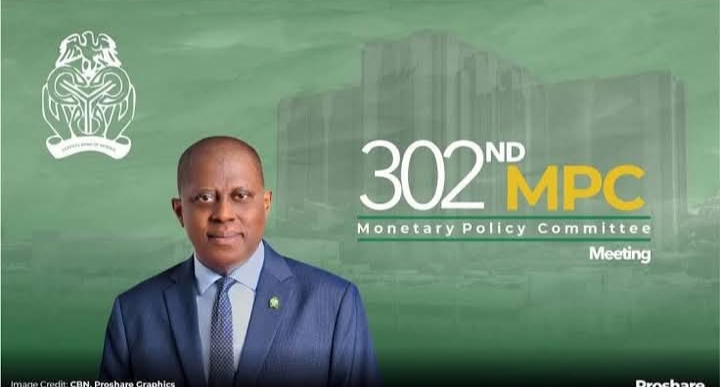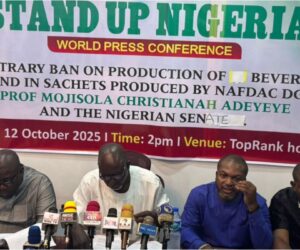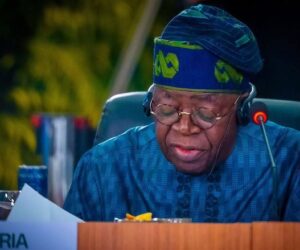

The Central Bank of Nigeria (CBN)’s Monetary Policy Committee (MPC) has reduced the interest rate to 27 per cent from 27.5 per cent in July.
The apex bank also said 14 banks have so far met the new regulatory capital requirements introduced earlier this year.
Similarly, it reduced Cash Reserve Ratio (CRR) for deposit money banks (DMBs) by 500 basis points (bps), the cash reserve requirement to 45 per cent for commercial banks, and 16 percent for merchant banks.
This is the first time in almost two years that the CBN is cutting rates after several calls for the regulator to do so following five months of disinflation.
Announcing the MPC decision, Tuesday, CBN Governor Olayemi Cardoso, after the end of the committee’s meeting in Abuja, said the bank also resolved to adjust the standing facilities corridor around the MPR to plus or minus 250 basis points, raise the Cash Reserve Requirement (CRR) for commercial banks to 45% while retaining that of merchant banks at 16%, introduce a 75% CRR on non-Treasury Single Account (TSA) public sector deposits, and maintain the Liquidity Ratio at 30%.
The CBN governor explained that the decision to lower the policy rate was driven by sustained disinflation over the past five months, projected further declines in inflation for the remainder of 2025, and the need to sustain economic recovery.
He added that the adjustment of the standing facilities’ corridor was targeted at improving interbank market efficiency and enhancing monetary policy transmission.
He said: “The MPC expressed satisfaction with the prevailing macroeconomic stability evidenced by the improvements in several indicators. These include the sustained disinflation, improved output growth, stable exchange rate, and robust external reserves.
“It particularly noted the increased momentum of disinflation in August 2025, being the highest in the past five months. This deceleration, underpinned by monetary policy tightening, exchange rate stability, increased capital inflows, and surplus coin-to-account balance, have helped to broadly anchor inflation expectations.
“Other factors that contributed to the deceleration include the continued moderation in the price of PMS and the notable increase in crude oil production.”
The CBN boss also disclosed that the country’s foreign reserves now stand at $43.05 billion in September 2025, compared to over $40 billion in August 2025.
“Gross external reserves remained robust at $43.05 billion on September 11, 2025, compared with $40.51 billion at end-July 2025 with an import cover of 8.28 months. Similarly, the Q2 2025 current account balance recorded a significant surplus of $5.28 billion compared with $2.85 billion in Q1 2025,” he said.
Cardoso further disclosed that about 14 banks had met the recapitalisation requirement scheduled to come into effect in 2026.
In reviewing the new capital requirements, the apex bank raised that of international banks to N500 billion, national banks’ capital was raised to N200 billion while the regional banks had theirs pegged at N50 billion.
“On the financial sector, the MPC noted the continued resilience of the banking system, with most of the financial soundness indicators remaining within their respective prudential benchmarks.
“Members also acknowledged the significant progress in the ongoing bank recapitalisation exercise, as 14 banks have fully met the new capital requirement. They therefore urged the Bank to continue the implementation of policies and initiatives that would ensure the successful completion of the ongoing recapitalization exercise,” he said.
…Experts on cut rate
Commenting on the decision, a Lagos-based economist, Dr. Olumide Ayoola, noted that the cut “is symbolic rather than aggressive.”
“The CBN is trying to send a signal of support for growth, but the economy is still battling high food prices, exchange rate volatility, and structural bottlenecks. A larger rate cut would have risked fuelling inflation further,” he said.
Similarly, investment strategist, Funke Ojo, observed that the reduction could improve liquidity for commercial banks and encourage lending, but warned that “until inflationary pressures ease, the benefit to the real sector will be marginal.”
On the fiscal side, analysts said the rate adjustment could slightly reduce government borrowing costs, given Nigeria’s heavy reliance on domestic debt instruments.
However, they cautioned that without corresponding reforms in energy, food production, and foreign exchange management, monetary policy alone cannot deliver sustained price stability.
Market watchers expect the CBN to maintain its cautious stance in the coming months, with further rate adjustments likely to depend on inflation trends, oil price stability, and the performance of the naira in the foreign exchange market.
“The MPC is walking a tightrope. It must support growth without stoking inflation, and that means we should expect more incremental adjustments rather than bold policy swings,” Ayoola added.








